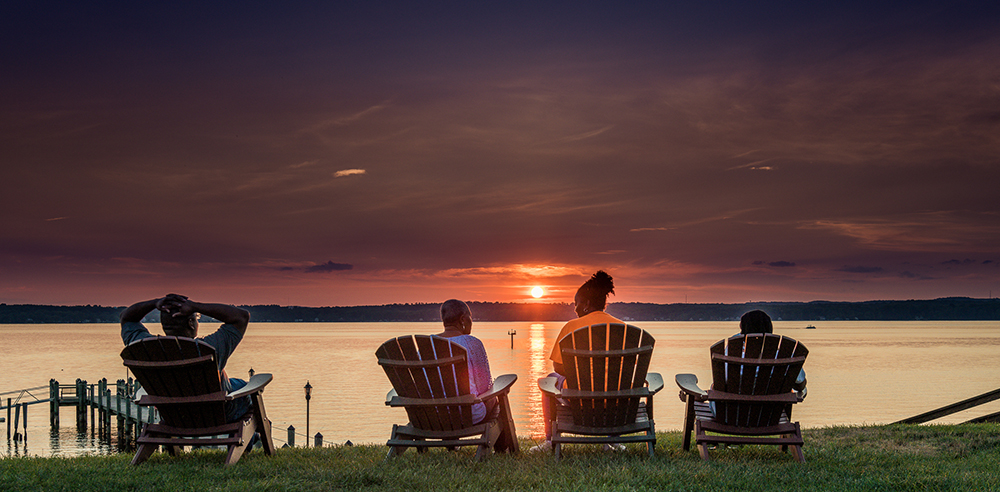I feel like we’ve covered a lot of ground in the first three posts in this series. Along the way I’ve probably disclosed too much about myself, leaving you to wonder if my anxiety really has improved. At the very least, you probably scratched your head in amazement when I admitted to dealing with my anxious thoughts and feelings by eating ice cream. To set the record straight, there were other foods too — it wasn’t just ice cream.
Because of a blog’s bias towards brevity, what a post often lacks are the characteristics of a long, meandering conversation with a good friend. Even if we roll out four (or more) posts exploring one topic, like we have here, there’s always more that could be written. Yes, we’ve covered a lot of ground, and we’ll cover more in this post, but we’re just scratching the surface. (That’s why books like Anxious for Nothing are so important.)
Anxiety is as old as our Edenic ancestors, and what I’ve discovered is that every one of us who struggles with it has a different angle on how to treat it. We know what works for us and what doesn’t — usually. Sometimes we’re skeptical of interventions that fall outside our current regimen. And while some of us have experienced a breakthrough, there are still plenty of us who haven’t, and the thought of finding freedom seems like a pipe dream.
Having already established that a lot of us are chronically anxious, I think this is a perfect time to repeat something important: the best way to deal with anxiety is head-on. Neglect is not a strategy for finding freedom. And wishing it away, pretending it doesn’t exist, doesn’t work either. To be released from the disquieting emotions we feel, there has to be a willingness to do what may be uncomfortable: ask for help.
To go it alone, which is a temptation we all face, runs counter to what we know is necessary for us to thrive. Whether we’re living with a clinically-diagnosed anxiety disorder or something less acute, what is universally true is that we need the love and support of other people. And we desperately need God. But what else helps?
Having a set of core beliefs and practices that can sustain us when anxious thoughts and feelings overwhelm us is crucial. What we think and do, how we believe and act, contributes to how we feel, and how we process our emotions. What the mind ruminates on will, like it or not, impact our lives either positively or negatively. And what we’re thinking about is not as hidden as we assume. It comes out in our words, actions, and attitudes.
There are at least two beliefs that have made a difference in my own struggle with anxiety. The first is that there is no one in the universe more committed to our wellbeing than God. Look no further than Jesus to understand just how far God is willing to go to bring freedom to those who are enslaved and healing to those who are broken. Abundant life — which is what is on offer to those who put their faith in Christ — is the only way to describe what happens when God’s life interpenetrates our own, awakening us to new possibilities, including the possibility that our anxious thoughts and feelings are no match for His promises. (There’s a powerful promise to claim in 1 Peter 5:10-11, one that has buoyed me during some of my most anxious moments.)
The second belief that has helped me tremendously actually comes from the pen of the late Eugene Peterson. As only he could, Eugene wrote: “Our problems don’t define us; God defines us. Our problems are neither the first nor the last word of who we are; God is.” While it is true that our problems are real and often serious, they are not the end of the story. Hope keeps us alive to the reality of who God is and how God acts, and therefore open to the miracle that can occur at any moment.
Anxiety doesn’t get the last word; God does. No matter how intense the struggle, He is right there with us, intervening in ways we may never fully comprehend. There is no part of my life or yours that He does not care about — every square inch of it matters to Him.
But what about specific practices? What can we do to quiet the roar of our anxious thoughts and feelings and make the shift towards a more peaceful life? The Apostle Paul has a few ideas, which we’ll explore in the fifth and final post in this series.


